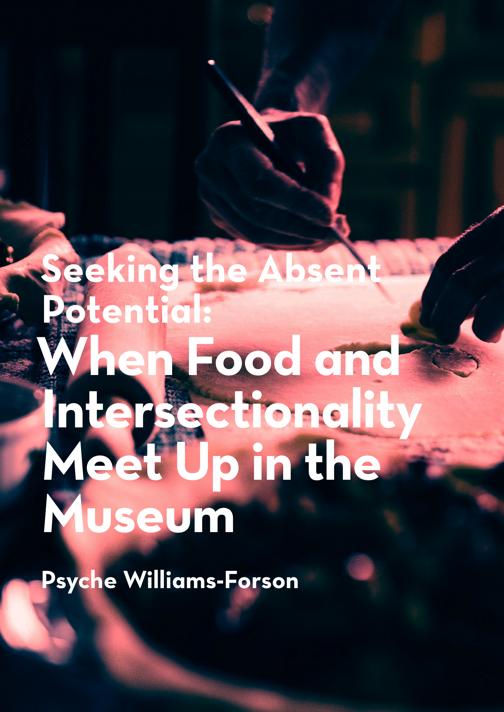Titelaufnahme
- TitelSeeking the Absent Potential: When Food and Intersectionality Meetup in the Museum
- Verfasser_in
- Enthalten ininsightOut. Journal on Gender & Sexuality in STEM Collections and Cultures, (2023) H. 1. Feminist and Queer Perspectives on Food, 37-52 (16 Seiten)
- Schlagwörter
- DOI
“Seeking the Absent Potential: When Food and Intersectionality Meetup in the Museum,” discusses the author’s role in the creation and development of an exhibition for the National Library of Medicine at the National Institute of Health (USA) exploring food and foodways in the early American Chesapeake Region. Rejecting traditional museum practices and approaches to this topic, this essay details the evolution of the exhibition using material culture, intersectionality, and the “radical political potential” of queer theory to reveal how we can find the “absent potential” in the wake of meager resources that center Black voices and lives.
CV
Dr. Psyche Williams-Forson is professor and chair of the Department of American Studies at the University of Maryland College Park. She is the author of Eating While Black: Food Shaming and Race in America (winner of the James Beard Media Award for Food Issues and Advocacy, 2023); co-editor of Taking Food Public: Redefining Food in a Changing World (2013); and, Building Houses out of Chicken Legs: Black Women, Food, and Power (winner of the Elli Köngäs-Maranda Prize, American Folklore Society). She is known nationally and internationally for her work in building the scholarly subfield of Black food studies, and she publishes and speaks extensively on topics such as Black women, food, and power; food and literature; food and sustainability; race, food, and design thinking; eating and workplace cultures; as well as the historical legacies of race and gender(mis)representation, with (and without) food.
Citation
Psyche Williams-Forson,“Seeking the Absent Potential: When Food and Intersectionality Meetup in the Museum. What Could Possibly Go Wrong?”, insightOut. Journal on Gender and Sexuality in STEM Collections and Cultures, 1(2023), 37–52, DOI: 10.60531/insightout.2023.1.3

